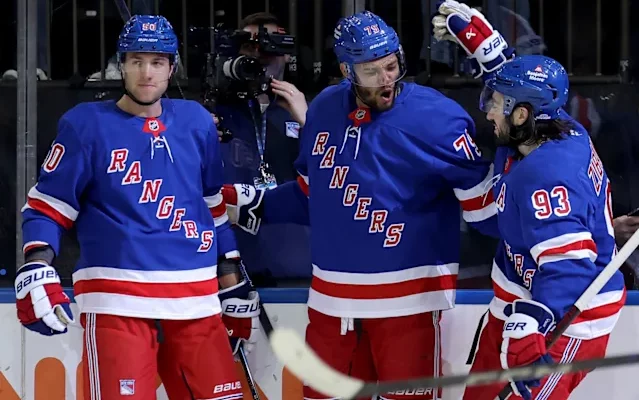The National Hockey League bid farewell to two of its most respected and accomplished veterans as Jaroslav Halak and Blake Wheeler officially announced their retirements, ending careers that spanned nearly two decades and left indelible marks on the league. Their departures mark not just the end of personal chapters but the closing of eras for multiple franchises and fanbases who watched these men grow into leadership roles, carry teams through highs and lows, and represent the NHL with poise and class both on and off the ice.
Jaroslav Halak’s career is one that began quietly but crescendoed into one of the most dependable goaltending runs in recent memory. Originally drafted in the ninth round of the 2003 NHL Draft by the Montreal Canadiens—271st overall, no less—Halak defied all odds to build a career defined by poise under pressure and clutch performances. While his raw numbers might not scream Hall of Fame, the context of Halak’s contributions cannot be understated. His breakout moment came during the 2010 Stanley Cup Playoffs, when he backstopped the Canadiens to a stunning upset of the top-seeded Washington Capitals, making 131 saves over the final three games of the series. That run, which also included a victory over the Pittsburgh Penguins, elevated Halak to near-legendary status in Montreal and remains one of the great Cinderella stories in recent NHL playoff history.
Throughout his 17-season career, Halak suited up for several teams—Montreal, St. Louis, Washington (briefly), the New York Islanders, Boston, Vancouver, and most recently, the New York Rangers. No matter the team or the circumstance, Halak consistently delivered solid goaltending, often in the role of a 1B or high-end backup, though he was more than capable of taking the reins when needed. He compiled 295 career wins, a .915 save percentage, and 52 shutouts—numbers that may not scream elite, but speak volumes about his longevity and consistency in a physically and mentally demanding position. His calm demeanor and ability to read plays with precision made him a trusted netminder for coaches and a calming presence for teammates. What’s more impressive is that he was never the biggest, fastest, or flashiest goalie in the league—he was simply smart, technically sound, and remarkably steady.
Blake Wheeler, on the other hand, represented the prototype of the modern power forward: big, skilled, fast, and intensely competitive. Selected fifth overall in the 2004 NHL Draft by the Phoenix Coyotes, Wheeler never suited up for them but eventually signed with the Boston Bruins. It was in Winnipeg, however, where Wheeler’s legacy was truly forged. After being traded from Boston to Atlanta, and then transitioning with the team to Winnipeg when the Thrashers became the Jets, Wheeler grew into the face of the franchise. He served as captain from 2016 until 2022 and was the emotional and strategic heartbeat of the team through some of its most competitive seasons.
Over his 15-year NHL career, Wheeler amassed 922 points in 1,172 games, including five seasons with 60 or more points and two 91-point campaigns in 2017–18 and 2018–19. His vision, playmaking ability, and leadership set him apart. While he was never the flashiest scorer, his elite passing and ability to drive possession made him one of the league’s most underrated stars for a long stretch. He consistently delivered, even when the Jets were mired in inconsistency or struggling to find their identity as a franchise. Teammates routinely lauded his toughness, his willingness to play through injury, and his vocal presence in the locker room. For many younger Jets players, Wheeler was a mentor, helping to guide the development of talents like Mark Scheifele, Kyle Connor, and Nikolaj Ehlers.
In many ways, Wheeler’s career arc paralleled that of the Jets themselves—emerging from relocation and uncertainty into one of the league’s most promising teams. Winnipeg’s 2018 run to the Western Conference Finals remains a career highlight, and Wheeler was central to that success. Though the team never quite reached the mountaintop, the culture he helped build in Winnipeg will endure long after his retirement.
The joint announcement of their retirements underscores a generational shift taking place in the NHL. Both Halak and Wheeler were part of a wave of players who came into the league during the early-to-mid 2000s and helped shape the transition from the post-lockout era into the modern, faster, more analytically-driven NHL. These were players who experienced the evolution of the sport firsthand—from obstruction-heavy defense and lower scoring games to today’s speed and skill-based product. Their ability to adapt and thrive in both environments is a testament to their talent and professionalism.
Beyond the numbers, what made Halak and Wheeler so special was their approach to the game. Neither was ever the league’s most talked-about superstar, and both often flew under the radar compared to flashier contemporaries. Yet both were integral to their teams and respected league-wide for their commitment to excellence. Halak, with his methodical preparation and ice-cold nerves, and Wheeler, with his physical presence and commanding leadership, brought immeasurable intangibles that can’t be captured in a stat sheet. They were glue guys, the kind of players coaches trusted in crunch time, the kind of veterans who elevate team culture.
Their retirements are also a reminder of the unrelenting passage of time in professional sports. As fans and media increasingly focus on the Connor Bedards, Cale Makars, and Leon Draisaitls of the world, it’s important to honor those who paved the way and served as transitional figures between generations. For every highlight-reel goal or spectacular save, there are hundreds of behind-the-scenes moments of dedication, sacrifice, and resilience that define a career. Halak and Wheeler embodied that work ethic in different ways, but both reached the highest levels of their profession through sheer perseverance and belief.
The hockey community has responded to their announcements with an outpouring of gratitude and admiration. Former teammates, coaches, opponents, and media figures have all chimed in with stories about their impact. Canadiens fans will never forget Halak’s 2010 playoff heroics. Jets fans are likely to remember Wheeler’s determined march into leadership and his relentless drive to make Winnipeg a respected hockey market. These aren’t just players—they are cultural landmarks in their respective organizations.
Now that they’ve stepped away from the game, both men leave behind legacies defined not just by statistics, but by the imprint they made on those around them. Whether Halak chooses to remain involved in the sport in some form—coaching, development, or broadcasting—or whether Wheeler transitions to front-office work, player mentorship, or takes a well-deserved break, they both depart with their reputations fully intact. Hockey, as a sport and community, tends to value humility, quiet leadership, and consistency over flash, and few players embodied those values more than Halak and Wheeler.
Their exits also raise questions for the teams they most impacted. Who will fill Wheeler’s leadership void in Winnipeg, even though he left the Jets a year earlier and played his final season with the New York Rangers? What will the Rangers do to replace Halak’s veteran steadiness as a backup goalie? These are practical matters that GMs and coaching staffs will have to resolve, but they also point to something deeper—the emotional and cultural gaps that long-time veterans leave behind. There’s no plug-and-play solution for what guys like Halak and Wheeler brought to the room. That’s what makes their retirements not just newsworthy, but genuinely impactful.
While neither may be headed to the Hall of Fame in the traditional sense, they both deserve a kind of hall of honor in the hearts of the franchises and cities they gave so much to. They are examples of what it means to be a professional—consistent, committed, and always working for the betterment of the team. In the end, that’s the kind of legacy that outlasts highlight reels and All-Star selections.
As the NHL prepares to usher in a new generation of stars, it does so with a moment to pause and appreciate what’s been lost. Jaroslav Halak and Blake Wheeler may no longer be suiting up, but their stories will be told by those who watched them play, played alongside them, and learned from their example. In a sport that never stops moving, their retirements offer a rare and welcome moment of reflection—and a thank you to two men who gave the game everything they had.



